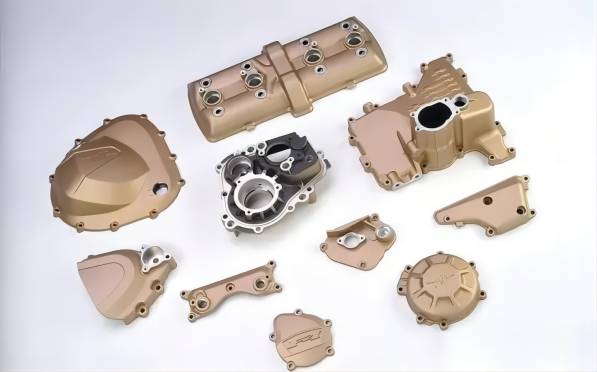
Privacy statement: Your privacy is very important to Us. Our company promises not to disclose your personal information to any external company with out your explicit permission.
The sunk cost of CNC precision machining may be higher than that of traditional machining methods. However, in the long run, the benefits provided by the process definitely make it worth the additional investment. Today I will share with you the benefits of CNC machining.
1. Strict tolerances
Tight tolerances are the main reason for using CNC precision machining. Someone may ask: What is tolerance?
Difference, that is, error, the thing we make may not be exactly the same as the imagined size, there may be an error, but as long as it is still within the acceptable range, then this thing can still be used. And tolerance is also called dimensional accuracy. It refers to slight deviations in the dimensions of a machined part from its CAD blueprint. CNC precision machining uses specialized processes and cutting tools to reduce tolerances to the smallest possible values. This results in greater accuracy of the part compared to the original blueprint.
Precision machining is typically performed with four different types of machining tolerances:
One-way tolerance: In this type of tolerance, dimensional variation is allowed in a single direction. Tolerance limits can be higher or lower than expected dimensions.
Bilateral Tolerance: In this type of tolerance, dimensional variations are allowed in both directions. Tolerance limits above or below the expected dimensions are acceptable.
Composite Tolerance: Composite tolerance is the final tolerance calculated by adding or subtracting the tolerances of the different dimensions that make up the part.
Limit size: Define upper and lower size limits instead of the desired size. For example, the preset size can be in the range of 20mm to 22mm.
2. High accuracy
Tight tolerances directly indicate that the final product made by precision machining will have high accuracy. Precision machining is generally performed on parts that need to cooperate with other parts. Therefore, high precision is crucial for these specific parts to work perfectly in post.
3. High repeatability
The concept of repeatability is one of the important cornerstones of modern manufacturing. Every part made by a process looks similar to every other part to the end user. Any deviation from this reproduction is generally considered a defect. Precision machining is attractive in this regard. Using high-precision CNC machining, each part can be made exactly the same as the original, and the deviation is so small that it can be ignored.

4. Low production cost
Since there is no deviation in precision machining, fewer defective products are produced. Therefore, this process can significantly reduce the scrap rate of parts. Therefore, material costs are lower. Additionally, automated computer-aided manufacturing processes can reduce labor costs. The combined reduction in labor and material costs means that production costs with CNC machining are lower than any alternative.
5. Speed and efficiency
Precision machining involves high-speed robotics that can make parts faster than manual manufacturing on traditional lathes. Additionally, these parts are finished with high precision and tight tolerances, so no secondary machining is required. This reduces production time and increases productivity and efficiency on the shop floor.
6. Complex processing capabilities
CNC machine tools can perform complex machining operations such as 3D surface milling, helical cutting, and multi-axis simultaneous machining. They can accurately control the movement of tools and workpieces according to pre-written programs, enabling the processing of complex shapes and structures.
7.Safety
CNC machine tools replace human labor with computer numerical control systems and eliminate the risk factor of human error involved in the cutting process, greatly reducing the potential dangers workers face when using machine tools. Workers have also been able to move into skill-intensive positions, such as CNC design operations.
8. Reduce human error
Since the operation of CNC machine tools is controlled by computers, the impact of human factors on processing quality is reduced. Human errors, such as fatigue, inconsistent operation and judgment, often lead to poor machining results. Using CNC machine tools can reduce these errors and improve the consistency and accuracy of machining.
The above 8 points are about the benefits brought by CNC precision machining. After reading this, everyone should have a clear understanding.
LET'S GET IN TOUCH

Privacy statement: Your privacy is very important to Us. Our company promises not to disclose your personal information to any external company with out your explicit permission.

Fill in more information so that we can get in touch with you faster
Privacy statement: Your privacy is very important to Us. Our company promises not to disclose your personal information to any external company with out your explicit permission.